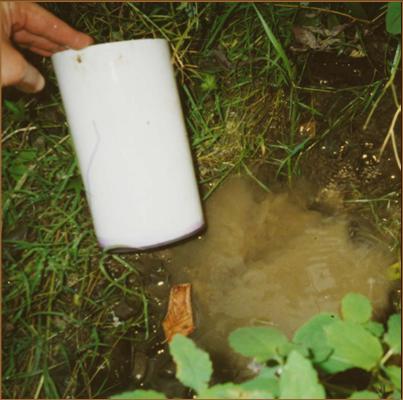
 |
|
|
What did the pilot study discover? Cornell scientists conducted a pilot study to examine the impacts of roadside ditches on Enfield Creek, a 56 km2 watershed that drains into the Cayuga Lake inlet in Tompkins County, NY. Field surveys and maps showed 87 km of roads. 142 km of ditches line these roads, compared with a total stream length of 88 km for this watershed. Of these roadside ditches, most were lined with weedy vegetation:

Using bedload sediment traps, sediment movement was measured after each precipitation event. Average quantities of sediment collected were: Extrapolating to the entire watershed, we estimate that ditches with bare soil and gravel substrates made up a small fraction of the ditch system length but contributed more than 80% of the 37,000 kg of sediment load discharging into Enfield Creek after each storm. |